
Soldering glass
Soldering glass, also known as glass solder, is a specialized material used to create robust and hermetic seals between glass and metal components, making it essential for high-precision applications requiring airtight and durable connections. Its properties include excellent hermetic sealing, high thermal stability, chemical resistance, low thermal expansion, and good electrical insulation. These characteristics make soldering glass ideal for various applications such as sealing electronic components in electronics and microelectronics, encapsulating optoelectronic devices, protecting sensitive components in aerospace and defense, ensuring sterility and durability in medical devices, manufacturing telecommunications devices, and constructing vacuum equipment. Its versatility and unique properties make it invaluable across these industries.

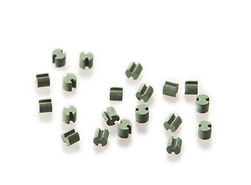
Product name:
P/N number:
Glass type:
Sealing temperature:
Glass density:
Expansion coefficient:
Soften point
Soldering glass
TLC-FR-47-58Z
PbO-B2O3-ZnO
330 ~ 380℃
7.02g/cm
6.5~7.5×10⁻ ⁶K⁻¹
230 C
o
Application: Soldering glass is commonly used in fiber optic devices, lenses, and other applications to achieve high-reliability sealing. It can hermetically seal with various metals, ceramics, and semiconductor materials, offering excellent wettability for hermetic packaging. Soldering glass is widely utilized in optical devices, optical modules, butterfly lasers, coaxial lasers, grating sensors, and passive adjustable attenuators.
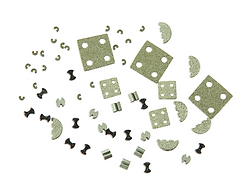
Product name:
P/N number:
Glass type:
Sealing temperature:
Glass density:
Expansion coefficient:
Soften point
Solderling glass
TLC-FR-47-03Z
PbO-B2O3-ZnO
320 ~ 370℃
7.02g/cm
8.4 ×10⁻ ⁶K⁻¹
230℃
Application: Lead-free glass sealing beads for heating tubes, specifically used for the hermetic and insulating sealing of the heating metal core and the outer metal tube in heating tubes. Compliant with ROHS standards.
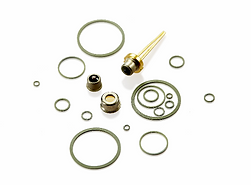
Product name:
P/N number:
Glass type:
Sealing temperature:
Glass density:
Expansion coefficient:
Soften point
Solderling glass
TLC-LWP01-1
440 ~ 480℃
8.8 ×10⁻ ⁶K⁻¹
320℃
Application: Soldering glass is used for sealing TO glass windows and Kovar covers, connecting TO caps and TO headers to make sure the hermetic space and the smooth transmission of optical signals. This soldering glass is a lead-free sealing glass that complies with ROHS standards. The soldering can be utilized in sealing high-precision micro ball lenses, flat window lenses, angled window lenses, aspheric lenses, and other lenses to the metal TO cap.

Product name:
P/N number:
Glass type:
Sealing temperature:
Glass density:
Expansion coefficient:
Soften point
Solderling glass
TLC-LWDW-1
430 ~ 460℃
8.5 ×10⁻ ⁶K⁻¹
329℃
Application: Soldering glass is used for sealing TO glass windows and Kovar covers, connecting TO caps and TO headers to ensure the hermetic space and the smooth transmission of optical signals. This soldering glass is a lead-free sealing glass that complies with ROHS standards. The soldering can be utilized in sealing high-precision micro ball lenses, flat window lenses, angled window lenses, aspheric lenses, and other lenses to the metal TO cap.

Product name:
P/N number:
Glass type:
Sealing temperature:
Glass density:
Expansion coefficient:
Soften point
Solderling glass
TLC-LWP01-2
450 ~ 470℃
9.4 ×10⁻ ⁶K⁻¹
328℃
Application: Soldering glass is used for sealing TO glass windows and Kovar covers, connecting TO caps and TO headers to ensure the hermetic space and the smooth transmission of optical signals. This soldering glass is a lead-free sealing glass that complies with ROHS standards. The soldering can be utilized in sealing high-precision micro ball lenses, flat window lenses, angled window lenses, aspheric lenses, and other lenses to the metal TO cap.

Product name:
P/N number:
Glass type:
Sealing temperature:
Glass density:
Expansion coefficient:
Soften point
Solderling glass
TLC-TW-15-10C
PbO-B2O3-SiO2
450 ~ 480℃
6.9 g/cm
7.2 ×10⁻ ⁶K⁻¹
290℃
Application: Soldering glass is used for sealing TO glass windows and Kovar covers, connecting TO caps and TO headers to ensure the hermetic space and the smooth transmission of optical signals. This soldering glass complies with ROHS standards. The soldering can be utilized in sealing high-precision micro ball lenses, flat window lenses, angled window lenses, aspheric lenses, and other lenses to the metal TO cap.
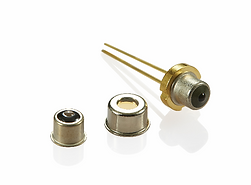
Product name:
P/N number:
Glass type:
Sealing temperature:
Glass density:
Expansion coefficient:
Soften point
Solderling glass
TLC-TW-15-20C
PbO-B2O3-SiO2
430 ~ 460℃
6.9 g/cm
8.3 ×10⁻ ⁶K⁻¹
288℃
Application: Soldering glass is used for sealing TO glass windows and Kovar covers, connecting TO caps and TO headers to ensure the hermetic space and the smooth transmission of optical signals. This soldering glass complies with ROHS standards. The soldering can be utilized in sealing high-precision micro ball lenses, flat window lenses, angled window lenses, aspheric lenses, and other lenses to the metal TO cap.
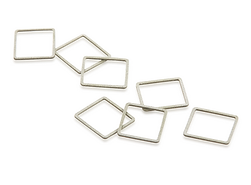
Product name:
P/N number:
Glass type:
Sealing temperature:
Glass density:
Expansion coefficient:
Soften point
Solderling glass
TLC-TW-15-40Z
5.6 ×10⁻ ⁶K⁻¹
288℃
Application: Soldering glass is used for bonding metal base frames and window glass in molded components, suitable for products requiring low expansion and low sintering temperatures. This type of glass ensures a secure and durable connection between the metal and glass parts, maintaining the integrity and performance of the product even under varying environmental conditions. The low expansion and low sintering temperature characteristics of this soldering glass make it ideal for applications where precise thermal matching and stability are crucial.

Product name:
P/N number:
Glass type:
Sealing temperature:
Glass density:
Expansion coefficient:
Soften point
Solderling glass
TLC-4Y-1
PbO-B2O3-ZnO
530 ~ 550℃
6.8 g/cm
8.5 ×10⁻ ⁶K⁻¹
295℃
Application: Soldering glass is used for bonding metal base frames and window glass in molded components, suitable for products requiring low expansion and low sintering temperatures. This type of glass ensures a secure and durable connection between the metal and glass parts, maintaining the integrity and performance of the product even under varying environmental conditions. The low expansion and low sintering temperature characteristics of this soldering glass make it ideal for applications where precise thermal matching and stability are crucial.